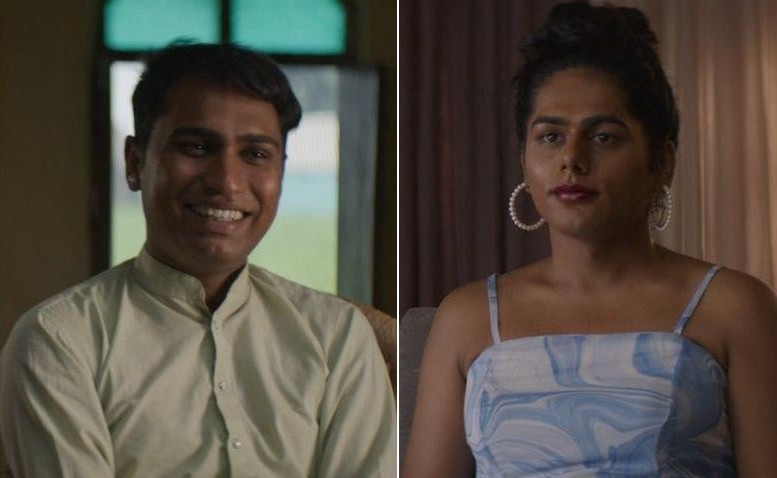Across The Spectrum:
Those who have never suffered from gender dysmorphia would probably not be able to understand what trans people go through. In Transit, the four-part documentary series (on Amazon Prime Video), created and produced by Zoya Akhtar and Reema Kagti, directed by Ayesha Sood, attempts to correct the misconceptions about transgenders.
Like an earlier show, Rainbow Rishta, about the LGBTQ community, this one too has trans men and women talking about their lives. The nine interviewees–Aryan, Rie, Anubhuti, Teena, Madhuri, Patruni, Rumi, Saher and Siddharth– chosen, from different regions and social backgrounds, are honest and articulate, not afraid to show their pain or share their triumphs. As one of them says, there are so many shades of gender identity between female and male, that they defy easy categorization. And when society, which includes family, cannot comprehend why the son they so desperately wanted is not masculine; or their daughter has no feminine traits, their confusion often results in cruelty.
In the once popular comedy series, Hum Paanch (1995), there was the character of a young woman, who dressed in male outfits and liked to be called Kajalbhai (played by Bhairavi Raichura); back then audiences, even more clueless about gender identity laughed at the ‘tomboy’ but for a girl growing up hating the femininity imposed on her, Kajalbhai was a hero. Now a male, after transitioning, Aryan, works as a clinical psychologist and is in a relationship with a woman.
A transwoman, Madhuri, who weeps when she says how she suffered for a sari—in the hijra community where she found kindred souls, the sari is a badge of identity—has married a man, but she is unable to get a marriage certificate and is not allowed to adopt a child. Even after the landmark NALSA judgment, Indian Supreme Court in 2014, that recognized the legal rights of transgender individuals, Madhuri says the law is 50 percent on paper, but there is also fifty percent change.
Patruni, who dances in drag, is married and has a child picks the identity of ‘gender fluid’ seems to be well adjusted, while singer Rumi, a trans man, who hated singing in a female voice, or wearing a sari that felt like “cockroaches were running over her body” talks of terrible loneliness, and also the surprising discovery that his mother did not much like being a woman either.
For most of them rejection by parents is heartbreaking, just as much as acceptance and support is encouraging. They went through the usual forms of ‘treatment’ from thrashing to electric shocks and jaadu tona, in the mistaken belief that they had a condition that could be cured. Outside the home, there is the trauma of bullying, molestation, violence and, unfortunately, ridicule, but these nine have found ways of rising above it all (one of them admits to considering suicide) and many are attached to organisations that work with the trans community, hoping to impart the wisdom gained by their own experiences, to help others. Anubhuti, a transwoman, managed to get the large corporate house she works with, become inclusive at the HR level. Teena, from the Van Gujjar community, has become a teacher working with children in a rural area. Rie, once attacked the streets in an obvious hate crime, went to London to do a course in human rights.
Not all have been able to undergo the expensive and arduous gender reassignment surgery, but they have learnt to accept themselves and live with courage and hope.
(This piece first appeared in rediff.com)

